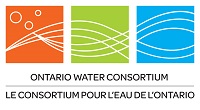Ecotoxicology
Ecotoxicology researchers assess water quality and its impact on aquatic biota. This expertise allows SOWC clients to study environmental stressors supported by the availability of mobile field facilities, bioassay facilities, and genomic equipment along with expert scientific and technical support.



Wilfrid Laurier Mobile Field Trailers
Each of the two Ecotoxicology Mobile Field Trailers have been designed to function as mobile laboratories to facilitate testing the exposure of multiple species to waste waters and contaminants within the watershed, including process streams from industries and municipalities, agriculture and other activities. The trailers are equipped specifically to test the responses of small-bodied native fish species, model teleosts (e.g., zebrafish), as well as primary producers (macrophytes, etc), invertebrates (larval insects, etc) and larval vertebrates (amphibians) to waste waters primarily along the Grand River.
The mobile field facilities are 30′ x 10′ portable trailers equipped for fish/invertebrate flow-through or static exposure systems (aquaria, air/power/lighting, heat pumps, plumbing, reservoirs, glass dilutor equipment, etc.). They also include equipment for sample collection, analysis, and water quality assessment. The mobile field trailers are staged at Wilfrid Laurier University, allowing integration of field and lab studies (including fish holding). The staging facility houses watershed hydrometeorology calibration units, and supports sample storage and analysis.
Genomics Facilities
Distributed Genomics Facilities (real-time PCR machines) are located at University of Ontario Institute of Technology, University of Guelph and University of Waterloo for projects requiring gene expression analysis of tissues from organisms exposed to waste waters. A bioanalyzer to be located at the University of Waterloo is a microfluidics-based platform for sizing, quantification and quality control of DNA, RNA, proteins and cells using an automated methodology.
Related articles
UOIT Experts Are Tackling a Variety of Ecotoxicology Issues With Help From SOWC
Ryerson’s Researchers Are Solving Urban Water Challenges
Ecotoxicology: From Card Tables to Mobile Labs
SOWC and Laurier’s partnership propels environmental research
SOWC taps into University of Guelph’s vast expertise in water
SOWC Researcher Profile – Dr. Glen Van Der Kraak
SOWC Researcher Profile – Dr. Deborah MacLatchy

